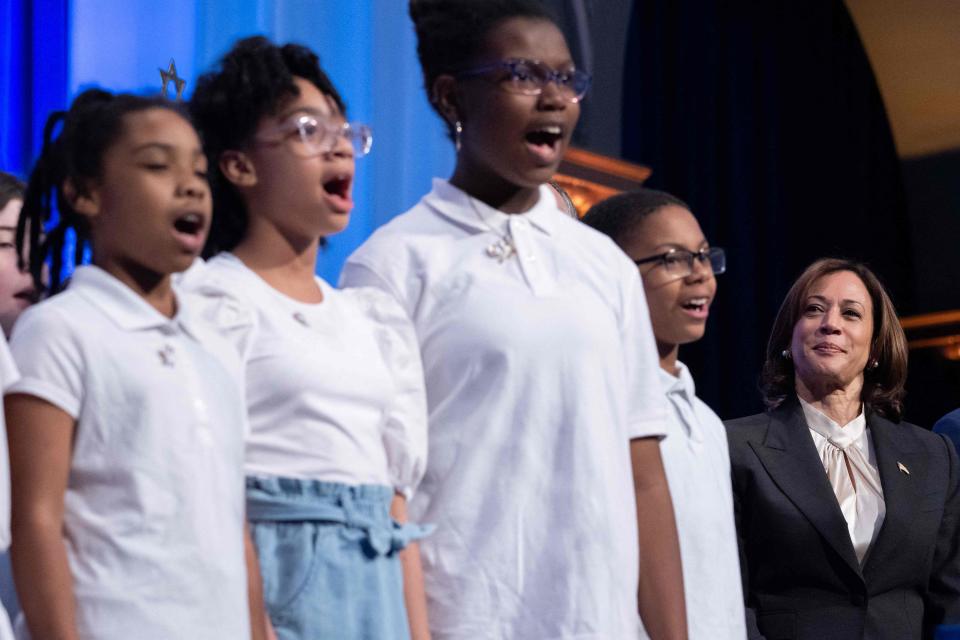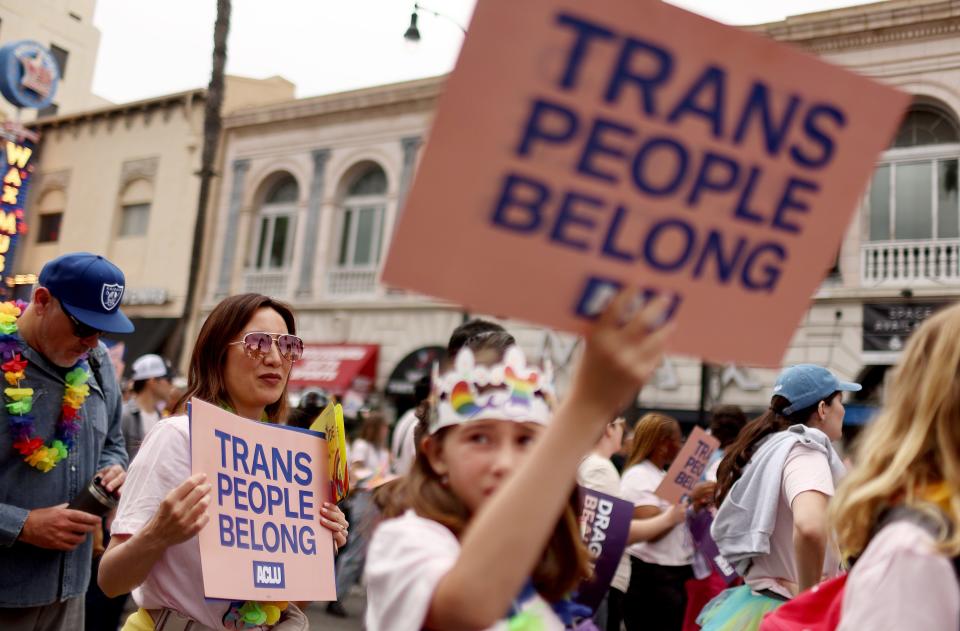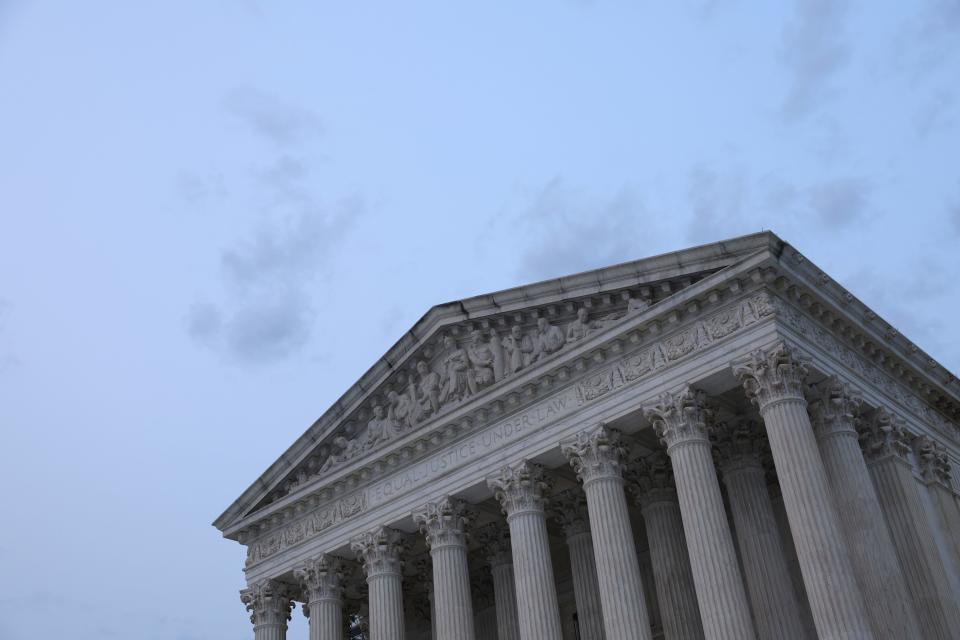Guns for domestic abusers? Skirts at school? A look at what may be next at the Supreme Court
WASHINGTON − The Supreme Court in coming weeks will hand down its final decisions on its closely watched docket, potentially upending affirmative action, President Joe Biden's student loan relief program and LGBTQ rights.
But even as the justices wrap up their work, they're also making decisions about the next term, which kicks off in the fall. The court may also announce whether it will hear significant cases involving guns, voting rights and other issues − adding to a docket already brimming with important disputes.
Here's a look at some of the appeals that may be on the horizon:
Should domestic abusers have access to guns?
Zackey Rahimi was involved in five shootings around Arlington, Texas, from late 2020 to early 2021. Police identified him as a suspect, obtained a warrant to search his home and found a rifle and a pistol. They also found a copy of a restraining order issued against him in 2020 after a physical fight with his girlfriend.
Rahimi is now appealing his conviction of violating a federal law, enacted in 1994, that prohibits Americans from possessing a firearm while they are the subject of a restraining order. He argues that the Supreme Court's landmark decision last year striking down a New York gun law means that the federal law also violates the Second Amendment.
A federal appeals court in Louisiana earlier this year sided with Rahimi and tossed his conviction. The appeal is an early test of the scope of the Supreme Court's ruling last year that made it more difficult for the government to impose gun regulations. In that 6-3 decision, the court ruled that gun prohibitions must be consistent with the nation's "historical tradition of firearm regulation."
In Rahimi's case, the federal appeals court said the law was a historical "outlier that our ancestors would never have accepted." The Biden administration appealed in May. The Supreme Court justices meet to discuss the case, U.S. v. Rahimi, on June 22.

'Fragile vessels': May a charter school mandate girls wear skirts?
Students and parents in Leland, N.C., have for years battled the Charter Day School over a uniform policy that requires girls to wear skirts. The reason for the policy, a school administrator told one of the parents, is that girls are "fragile vessels" deserving of "gentle" treatment by their male classmates.
Charter schools, created in part to foster innovation into public school systems, are privately run and publicly funded.
A federal appeals court last year ruled the dress code violated the equal protection clause of the 14th Amendment and the school appealed to the Supreme Court in September. The Biden administration last month said it is supporting the parents, arguing that the justices should let stand the lower court ruling.
If the Supreme Court ignores that advice and agrees to hear the case, the decision could provide clarity about whether charter schools are subject to the same laws as other public schools, or act more like private entities. Although there are many differences in how states set up charter schools, a decision could have ramifications far beyond a dress code at a single school.
Courts are almost certain to wrestle with some of those same questions as they begin weighing the nation's first religious charter school, an online Catholic school approved by Oklahoma authorities this month.
The case is Charter Day School v. Peltier and the justices are set to discuss it June 22.

A transgender woman housed with male prisoners
Kesha Williams, a transgender woman, spent six months in a Virginia prison on a drug-related offense housed with male inmates. Though officials initially assigned Williams to women's housing, they reassigned her when they learned she was transgender. For weeks she was denied her prescribed hormone medication.
Williams was also denied requests to shower privately and to have body searches conducted by female deputies.
She sued the county sheriff after her release, alleging in part that the treatment violated the Americans with Disabilities Act. The 4th U.S. Circuit Court of Appeals last year became the first federal appellate court in the nation to rule that the landmark disability law protects people with gender dysphoria.
The county notes that the ADA denies protection for "gender identity disorders not resulting from physical impairments," which the county said means Williams is not protected. But the appeals court disagreed, finding that gender dysphoria does not fall under that exception.
If the Supreme Court grants the case, Kincaid v. Williams, it would likely decide whether transgender people receive protection under the ADA − including in contexts other than prison. The justices met privately to discuss the case Thursday.

'Racist taint.' Can a voting ban targeted at Black Mississippians stand?
The high court has for months weighed whether to grant a case involving a permanent voting ban on people convicted of certain felonies in Mississippi's constitution. The constitutional convention delegates who gathered in 1890 to include the ban were clear about their racist intent. The question for the Supreme Court is whether subsequent changes to the state constitution wiped away that "racist taint."
Eleven states, including Mississippi, don't automatically restore voting rights after convicted felons serve their prison sentences, according to the National Conference of State Legislatures. But voting rights experts say that even among those states, Mississippi is an outlier because of how difficult it is for people to regain the right to vote.
The justices have been weighing the case, Harness v. Watson, for months. They were set to discuss it again on Thursday.

This article originally appeared on USA TODAY: Guns, dress codes, voting: Here's what may be next for Supreme Court

